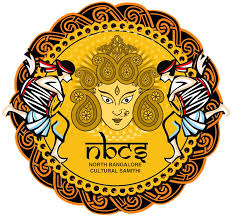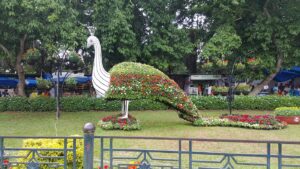Culture of Religion in Bangalore: A Diverse Tapestry of Faiths
Bengaluru, the official name for Bangalore, is a city where religion and culture coexist in a distinctively peaceful manner. One of India’s most cosmopolitan cities and the capital of Karnataka, Bangalore is home to a diversified population that represents a wide range of religious beliefs, spiritual traditions, and cultural customs. Bangalore’s diverse religious landscape not only reflects India’s eclectic culture but also highlights the city’s welcoming and inclusive nature.
The harmonious cohabitation of the main religions—Hinduism, Islam, Christianity, Jainism, Buddhism, and Sikhism—is among the most remarkable aspects of Bangalore’s religious culture. Every neighborhood preserves its spiritual identity while adding to the city’s common culture via everyday customs, festivals, architecture, and cuisine.
As the predominant religion, Hinduism is widely practiced throughout the city. The terrain is dotted with several temples, both old and contemporary. A significant architectural and spiritual monument is the Bull Temple in Basavanagudi, which is devoted to Nandi the bull. Another important location is the ISKCON Temple in Rajajinagar, which draws both visitors and devotees with its majesty and religious offerings. The Tigala community celebrates the Karaga Festival, one of the oldest and most colorful Hindu processions in Bangalore, which has its roots in local Draupadi cult traditions. The fact that Muslims participate in the event is a great example of interfaith cooperation.
Islam has a significant role in Bangalore’s religious landscape as well. The city is home to old mosques with beautiful Islamic architecture, such Masjid-e-Khadriya on Millers Road and Jama Masjid in City Market. Major hubs of Muslim culture, such as Shivajinagar and Fraser Town, come to life during Ramadan, when the marketplaces are bustling with food vendors and social events.
Christianity has existed for a very long time, especially from the time of colonization. More than just places of worship, churches such as Infant Jesus Church, St. Mary’s Basilica, and St. Mark’s Cathedral are historical landmarks with thriving populations. An iconic religious and cultural event, Shivajinagar’s annual St. Mary’s Feast attracts people of all religions.
Despite being a minor group, Bangalore’s Jains have had a big impact on the city’s economic, education, and religious life. The deep-rooted influence of Jain philosophy and aesthetics is reflected in stunning Jain temples, such as the Shravanabelagola-inspired temples at Jayanagar and Chickpet. The values of vegetarianism, generosity, and non-violence are actively promoted by the community.
The Mahabodhi Society Temple near Gandhinagar is one of the symbolic centers of Buddhism, despite its lower prevalence. These locations foster compassion and awareness while acting as tranquil retreats.
Gurudwaras, like the Sri Guru Singh Sabha in Ulsoor, serve hundreds of people every day, regardless of caste or religion, through the langar (community kitchen) practice.
In general, Bangalore’s religious culture encompasses more than simply rituals and places of worship; it also involves respect for one another, communal areas, and the merging of many religious traditions. It depicts a city where tradition finds a home in the cadence of urban life and spirituality enhances modernity.
Culture of Religion in Bangalore: A Diverse Tapestry of Faiths
Bengaluru, the official name for Bangalore, is a city where religion and culture coexist in a distinctively peaceful manner. One of India’s most cosmopolitan cities and the capital of Karnataka, Bangalore is home to a diversified population that represents a wide range of religious beliefs, spiritual traditions, and cultural customs. Bangalore’s diverse religious landscape not only reflects India’s eclectic culture but also highlights the city’s welcoming and inclusive nature.
The harmonious cohabitation of the main religions—Hinduism, Islam, Christianity, Jainism, Buddhism, and Sikhism—is among the most remarkable aspects of Bangalore’s religious culture. Every neighborhood preserves its spiritual identity while adding to the city’s common culture via everyday customs, festivals, architecture, and cuisine.
As the predominant religion, Hinduism is widely practiced throughout the city. The terrain is dotted with several temples, both old and contemporary. A significant architectural and spiritual monument is the Bull Temple in Basavanagudi, which is devoted to Nandi the bull. Another important location is the ISKCON Temple in Rajajinagar, which draws both visitors and devotees with its majesty and religious offerings. The Tigala community celebrates the Karaga Festival, one of the oldest and most colorful Hindu processions in Bangalore, which has its roots in local Draupadi cult traditions. The fact that Muslims participate in the event is a great example of interfaith cooperation.
Islam has a significant role in Bangalore’s religious landscape as well. The city is home to old mosques with beautiful Islamic architecture, such Masjid-e-Khadriya on Millers Road and Jama Masjid in City Market. Major hubs of Muslim culture, such as Shivajinagar and Fraser Town, come to life during Ramadan, when the marketplaces are bustling with food vendors and social events.
Christianity has existed for a very long time, especially from the time of colonization. More than just places of worship, churches such as Infant Jesus Church, St. Mary’s Basilica, and St. Mark’s Cathedral are historical landmarks with thriving populations. An iconic religious and cultural event, Shivajinagar’s annual St. Mary’s Feast attracts people of all religions.
Despite being a minor group, Bangalore’s Jains have had a big impact on the city’s economic, education, and religious life. The deep-rooted influence of Jain philosophy and aesthetics is reflected in stunning Jain temples, such as the Shravanabelagola-inspired temples at Jayanagar and Chickpet. The values of vegetarianism, generosity, and non-violence are actively promoted by the community.
The Mahabodhi Society Temple near Gandhinagar is one of the symbolic centers of Buddhism, despite its lower prevalence. These locations foster compassion and awareness while acting as tranquil retreats.
Gurudwaras, like the Sri Guru Singh Sabha in Ulsoor, serve hundreds of people every day, regardless of caste or religion, through the langar (community kitchen) practice.
In general, Bangalore’s religious culture encompasses more than simply rituals and places of worship; it also involves respect for one another, communal areas, and the merging of many religious traditions. It depicts a city where tradition finds a home in the cadence of urban life and spirituality enhances modernity.




